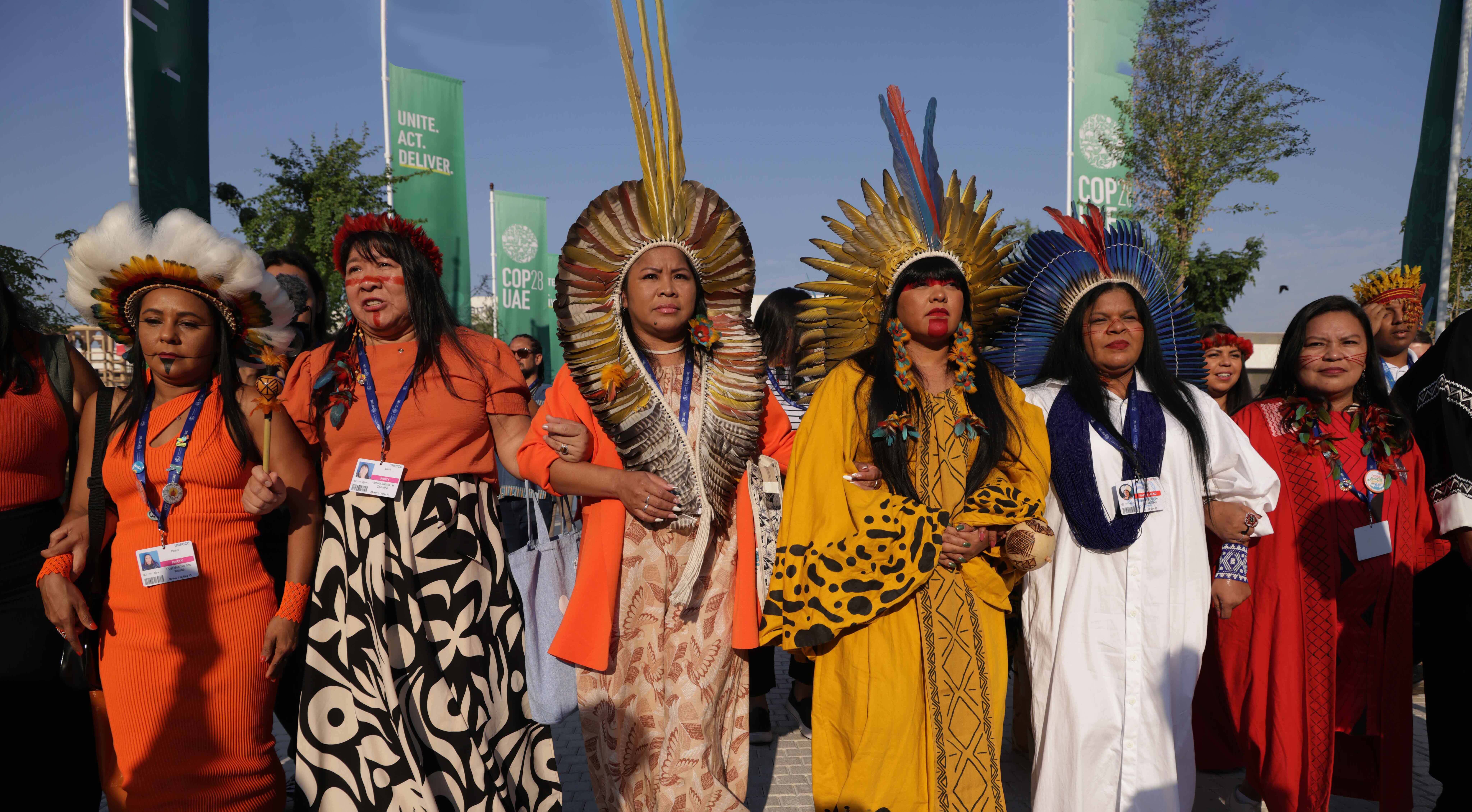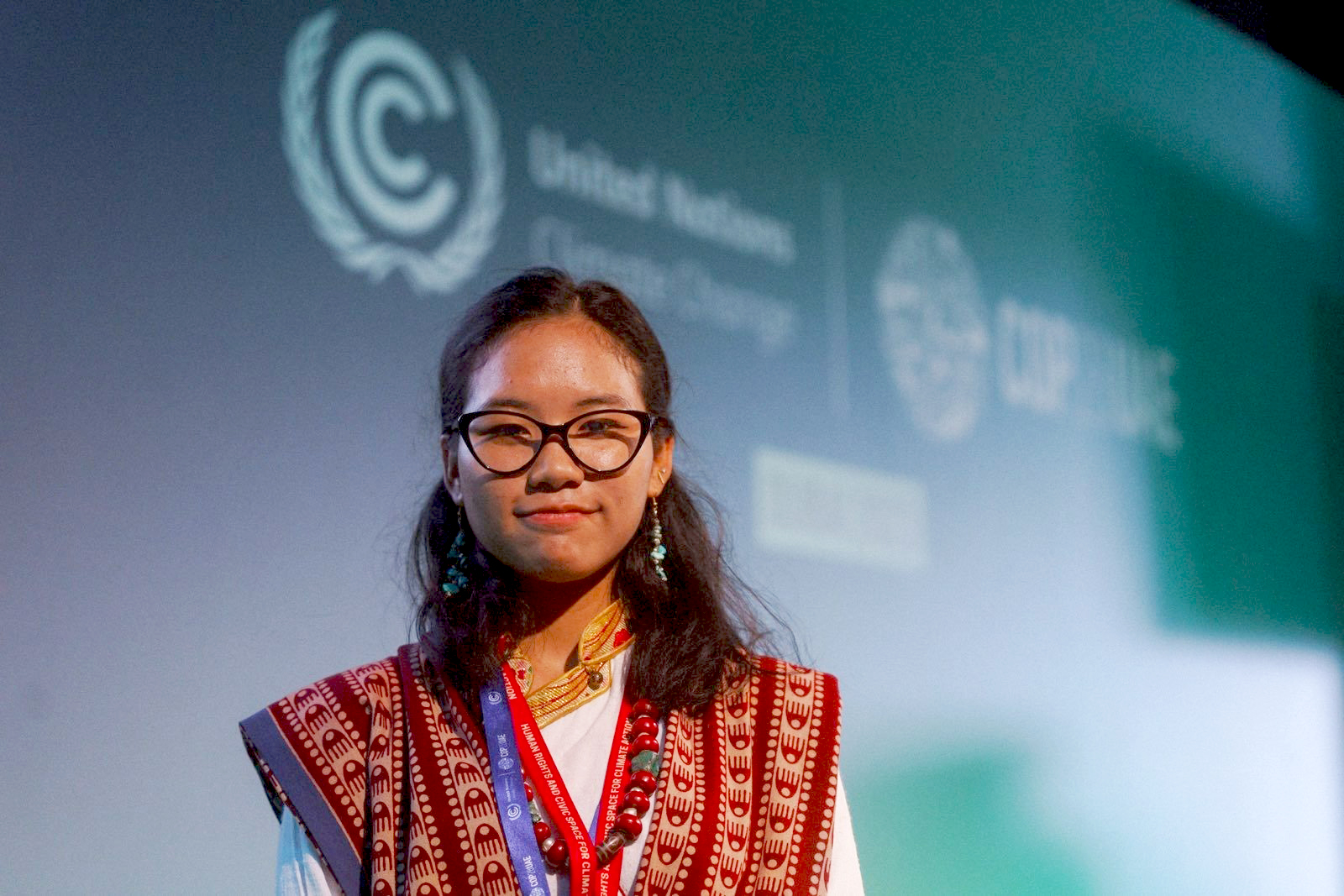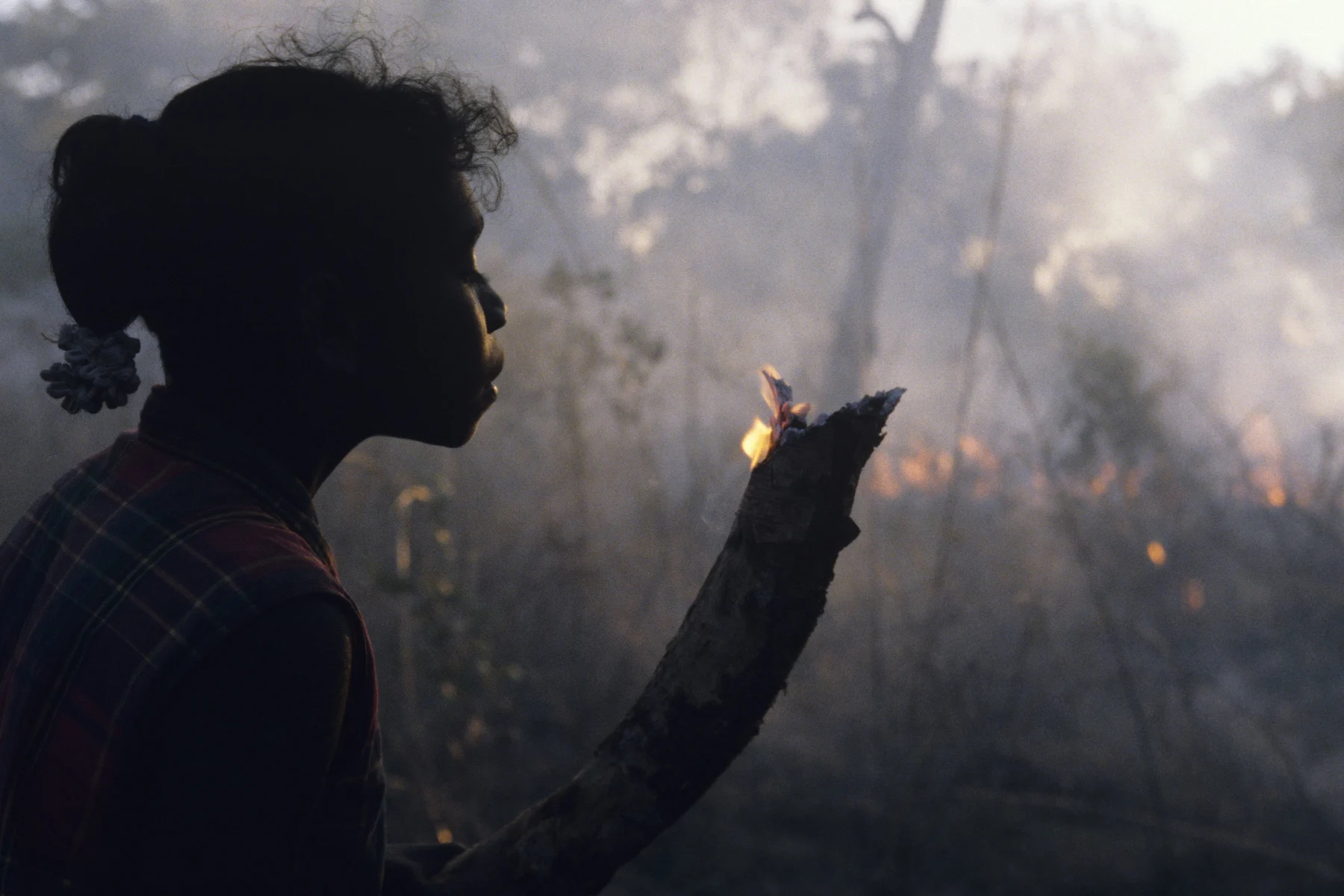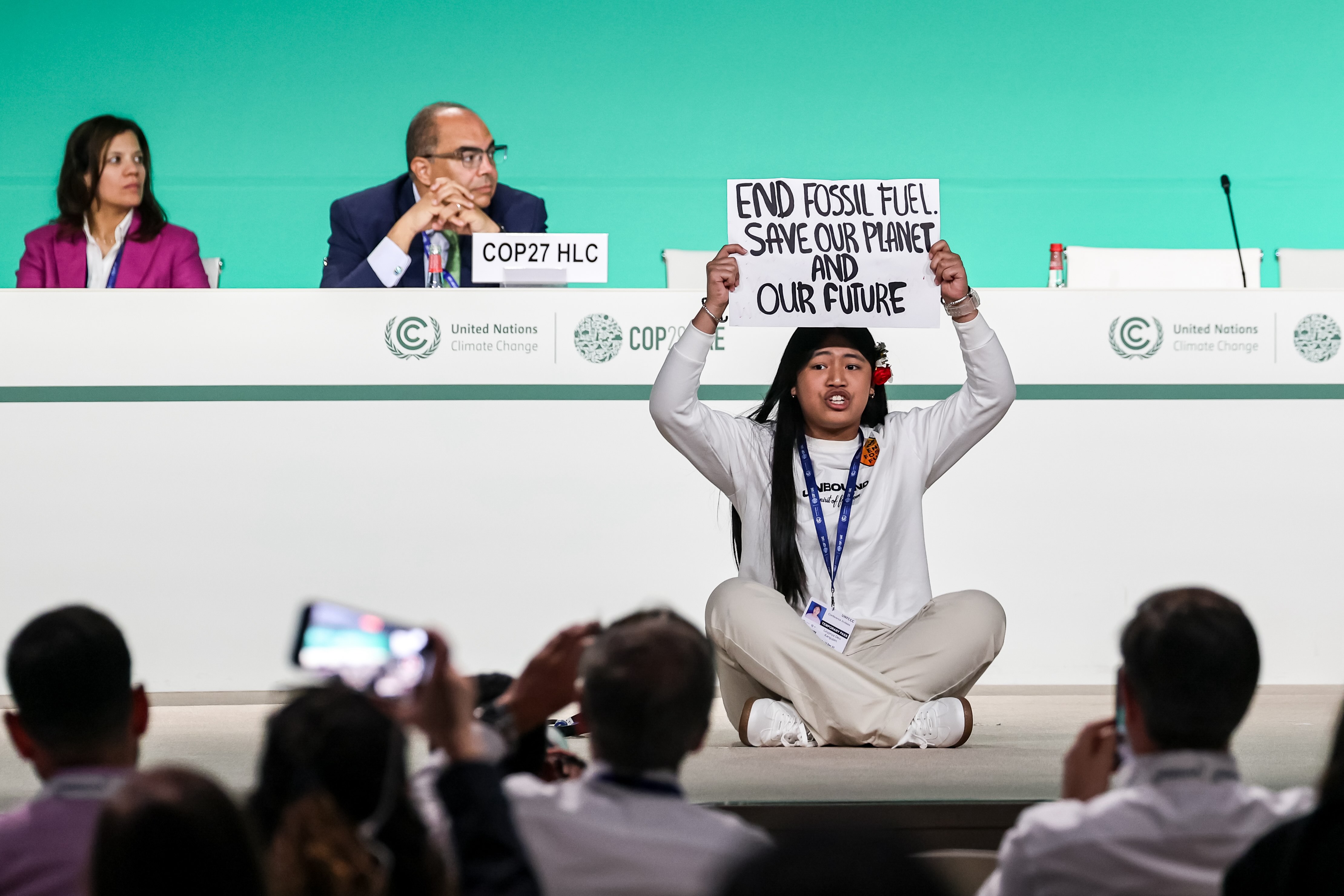
Indigenous knowledge has the power to help address the climate crisis

Indigenous advocates aim to ensure that Indigenous knowledge is fully recognised as part of the solution to climate change
Published 14 December 2023
The role of Indigenous knowledges in the climate crisis became a focal point of COP28, the United Nation’s climate change conference.
At the opening plenary in Dubai, the International Indigenous Peoples’ Forum on Climate Change Caucus delivered a bold call for action.

Referring to the UN Declaration on the Rights of Indigenous Peoples, Pema Wangmo Lama, an Indigenous youth activist from the Mugum Indigenous community in Nepal, described how climate-induced disasters are threatening Indigenous ways of life around the world.
She called for urgent compensation and a moratorium on carbon markets and offsets, geo-engineering, mal-adaptation technologies, “Net Zero frameworks” and “nature-based solutions”.
In her address, Pema explained how these practices are failing to reduce global warming and are instead creating new forms of colonisation, militarisation, criminalisation and land loss.

On behalf of Indigenous communities across the globe, Pema committed to working with nations to implement real solutions based on Indigenous knowledge, practices, time-tested sciences and reciprocity with the natural world.
Indigenous advocates want to ensure that Indigenous knowledge is fully recognised as a solution to climate change.
This growing recognition of the potential of Indigenous knowledge and practices to enrich and strengthen current and future adaptation efforts has implications for the university sector – both locally and globally.
Research in partnership with indigenous communities
Drawing on our research strengths in climate, environment, sustainability and Indigenous knowledges the University of Melbourne is playing a leading role in tackling the climate crisis.

The Indigenous Knowledge Institute (IKI), one of five interdisciplinary research institutes, aims to advance research and education in Indigenous knowledge systems.
The ‘Healthy Country’ research stream is developing benchmarks and metrics to measure the efficacy of management approaches as well as facilitating the development and implementation of cultural mapping and Healthy Country management plans.
The overarching aim is to empower Indigenous people to influence and govern decisions that shape their Country.

Sciences & Technology
Indigenous knowledge and the myth of ‘wilderness’
The theme is led by Professor Michael-Shawn Fletcher, a Wiradjuri man and expert in tracking the long-term interaction between humans, climate, disturbance and vegetation.
His groundbreaking research is resulting in a more nuanced story of Indigenous interaction and management of the Australian landscape for the past 40,000 years or more.
The IKI also has a strong focus on building the next generation of Indigenous leaders.
A recipient of a 2023 IKI PhD Bursary, Djarra Delaney, a Quandamooka person from the Moreton Bay region of Southeast Queensland, will investigate climate adaptation practices in Australian Indigenous island communities.

His work will examine the intersectional issues of colonisation and climate change, offering new Indigenous methods for undertaking adaptation practice that centres Indigenous knowledges, spirituality, culture and respect for the environment.
The University’s place-based partnership with North East Arnhem Land is also proving a gateway to two-way knowledge sharing on climate change and adaption.
A seed project, funded by the IKI, is examining native bee climate adaptation in Arnhem Land. It has the potential to become a model for research that draws on Indigenous knowledge that enhances understanding of species and supports their adaptation to climate change.

Business & Economics
Getting the right money on the right terms at COP28
These projects are underpinned by a strong commitment to establishing and nurturing meaningful and enduring collaborations with Indigenous communities – empowering Indigenous researchers and communities while avoiding extractive, tokenistic and harmful practices.
Collective power of indigenous networks
Universities have long prioritised global networks as vital to sharing and growing global knowledge.
However, Indigenous knowledge is rarely a focus of higher education internationalisation agendas.
Prioritising international Indigenous networks is critical to ensuring that Indigenous voices are at the fore of engagement with tertiary institutions and networks across the world. These networks shape and develop global Indigenous research and education with a potential to play a major role in addressing global challenges, like climate change.

In November, the University of Melbourne hosted a gathering of international leaders in Indigenous and First Nations knowledges for the second workshop of the Association of Pacific Rim Universities (APRU) Indigenous Knowledges Network.
Participants from 17 different universities attended the week-long workshop attending research showcases at the University’s Dookie campus and spent time on country in the Yorta Yorta Nation, hearing from the University’s Goulburn Valley community partners and local Indigenous Elders.
The APRU Indigenous Knowledges Network, led by the University of Melbourne, includes participants from 12 APRU member institutions from across Asia, Latin America and the Pacific.

The University’s leadership in the APRU network is central to our commitment to ensuring that Indigenous voices are at the fore of our engagement with tertiary institutions and networks across the world, as outlined in Murmuk Djerring, our Indigenous Strategy.
This network brings together the work of APRU members in multilateral collaborations to share knowledge, build connections between researchers and enhance teaching programs in Indigenous and First Nations’ studies.
Discussions took place against a backdrop of continuing economic pressures, often contentious debates over local and geopolitical issues, and the worsening climate crisis.
This enthusiasm for building global collaborations reflects the goals of COP28 and the urgent need to work together, across sectors and geographies.
In Dubai, Indigenous leaders argued for governments to heed the recommendations of UN climate and biodiversity experts and work with Indigenous peoples, who have lived in balance and harmony with nature for thousands of years.
Global networks are vital to strengthening Indigenous research and collaboration to elevate Indigenous solutions to the big challenges of our time.
Banner: Getty Images


